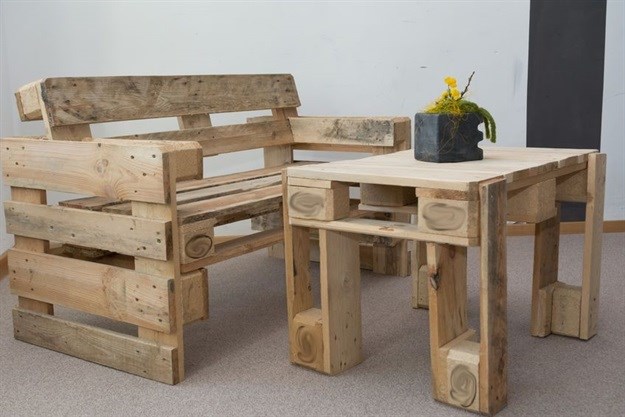
Subscribe & Follow
Upcycling beats carbon tax, drives skills and B-BBEE compliance

Upcycling is about transforming a product into another product of equal or higher value, but its key benefit is that it minimises waste. There are certain items that just cannot be recycled - think germ-laden paper handtowels and plastic-lined paper coffee cups, however, these items can be upcycled. In addition, some of these items can be more energy-efficiently upcycled than recycled due to the fact that the energy taken to recycle may increase the company’s carbon footprint. For example clothing, tyres, wood, glass and plastic can all fall into this category.
Innovative and entrepreneurial thinking is making it easy – and increasingly attractive – for South African companies to upcycle. It’s not just about better stewardship of our environment; upcycling can have a hugely positive impact in terms of addressing skill gaps, unemployment, community development and the economic upliftment challenges South Africa faces.
The most pressing issue is that landfills in South Africa have reached overcapacity and burning waste is not an option – the country already ranks high (41st in the world) in terms of greenhouse gas emissions per capita. As the government readies to implement the Carbon Tax Bill in early 2019 to help lower energy consumption and waste, companies are taking a serious look at how to manage their eco footprint. Upcycling delivers an impact that cannot be overlooked.
While companies may produce waste in the course of their operations that can be upcycled, there’s also easily accessible waste that can be upcycled… and a big motivation to do so.
Upcycling offers big benefits
Upcycling, done well, delivers broader benefits. It is an opportunity to invest in the upliftment of communities, impart skills, provide employment, encourage entrepreneurship, produce commercially viable products and support business development. That ticks a lot of B-BBEE, social development and CSI boxes for companies that have a strong sustainability ethos. There are companies that are making it possible.
Over the last five years, companies have started building a strong track record, establishing a number of successful and sustainable upcycling programmes, and creating an entire upcycling ecosystem to support this expanding opportunity.

Business value is a priority
The first priority is to align any project with the company’s strategic goals and B-BBEE and CSI targets. This means understanding which communities they want to benefit and how this can be achieved. Logistics should then be taken care of, from identifying suitable waste to upskilling people from the community and providing business and entrepreneurship training. Importantly, all outputs should be managed, including all required legislative reporting and the final sale of upcycled goods.
Winning upcycling solutions
For corporates, the wins are skills development, enterprise development, socio-economic upliftment, and better management of the company’s eco footprint. Many corporate clients also buy back the upcycled goods as corporate gifts (e.g. plant containers, candle holders, lamps, etc.) turning these upcycling businesses into suppliers.
There are also some companies that are taking upcycling to the next level.
For example, in South Africa a construction company is taking the opportunity a step further. In addition to donating unneeded material from construction operations, it gives the upcycling team access to state-of-the-art tools and facilities to create the upcycled goods. This is enabling not just the development of a viable business producing saleable goods, but training up potential skills that can be used in the construction business and supporting the growth of a potential supplier to the business.
Take the first steps
Upcycling is for everyone but businesses in South Africa have a big role to play – by supporting upcycling they can benefit the business and help drive economic growth. It is not hard to get involved.
While some businesses are very specific in terms of which communities they would like to benefit, and the skills they would like to impart, others do not have the resources to manage the project and are simply keen to minimise waste. Companies need to get involved with business that have economic development roots and an understanding of legislative requirements, these kinds of business will be able to deliver on all aspects of these projects, as needed.
As global waste continues to grow and the impact on our planet grows, it’s everyone’s responsibility to explore new solutions. Upcycling is a good one.
About Yasmine Miemiec
Yasmine Miemiec, executive director at 5Inc
















